Interdisciplinarity of Music Theory: Between History, Poetics, Theories, and Criticism
7-9 October 2022, Belgrade
14th Biennial International Conference on Music Theory and Analysis
Website
The interdisciplinarity of music theory is a fact that does not need to be proven, because it is an undeniable state of development of music theory in the late 20th and early 21st century. However, examining the issue of possibilities of different theoretical and research approaches to music, the question of the humanistic scope, value and significance of the interdisciplinarity of music theory becomes challenging at a time when the ideology of posthumanism or transhumanism is becoming increasingly dominant, striving to redefine humanity by devaluing the human spirit and soul, contributing to the inferiorization of the humanities, which form the identity basis of every culture and society. The main goal of the 14th International Conference on Music Theory and Analysis, organized by the Department of Music Theory of the Faculty of Music of the University of Arts in Belgrade (Serbia), is to consider the interdisciplinary situation of the music in the 21st century by re-examining the boundaries of the discipline of music theory, not only within the science of music (music scholarship), but also in the wider field of humanities. The ultimate goal is to articulate a vision of interdisciplinary relations and connections in the future through critical retrospective of the past, while preserving humanistic values, intersubjectivity and dialogicity.
The conception of the conference discussion proposes the gradation of four cognitive music theory approaches - history of music theory, historical and theoretical poetics of music, humanistic theories of music and music criticism - at the intersection of diachronic and synchronic horizons of understanding music. The nature and function of music, its phenomenal diversity, temporality and transformativeness, its analysis and understanding can best be determined in the space between which the notion of interdisciplinarity suggests, because none of the mentioned approaches can fully grasp the meaning of music on its own. This is possible only through dialogue between different paths (méthodos) of cognition and music itself as an object of cognition. At the same time, knowledge about music is not just about what we think we already know because it has already been thought. As cognition, it refers to the intuition of the unknown in the sense of what has not yet been thought, described and explained, and which we assume has the value of truth that has yet to be discovered (aletheia) and constituted as knowledge. This is exactly what the challenge of the conference discussion should be.
If the theory in general grew, according to Herodotus and Thucydides, from the experience of observing the divine, the sacred, the sublime (theion, theos-God; hora-attention, consideration, honor), and the theorist (theoros) was an envoy and traveler returning from afar and foreign lands to convey the spiritual insight gained by observing (theorein) some sacred rite or secret mystery and that which is foreign, strange and unknown, rare, isolated and unique, furthermore, if, according to Plato, theory ceased to be mythos and became logos, that is, an insight into the nature of a generality acquired through contemplation that is no longer only sacred and divine but human and natural (thea-view, sight, appearance; hora-observation, viewing), then it can be said for music theory as music and as theory that it is not just an observation of the sacred and divine, eternal, or at least permanent in music itself as a cosmological and metaphysical experience, nor just a mental consideration of music in its essential or eidetic structure as a philosophical experience, but it is also a methodical examination of the ways in which all music appears as a category for knowledge and communicates with knowledge shaped into the discipline of music theory. The historical approach to music theory should illuminate and describe the historical awareness of music in its categorical form, but also the dynamism of creating the theoretical discourse on music (with its immanent concepts, orientations and methods) in epochal cultural contexts given the historical path that music theory has traversed, from philosophical speculation to poetics and criticism. If we keep in mind, as Aristotle put it, that the knowledge offered by poetics is that which, by means, procedures, techniques and technologies, can lead to assembling, building, making, whereby it is then the knowledge as the art of creation (poiesis), and not of cognition (epistemē), then the insights into general rules and principles as expressions of the normativity of creation are certainly theoretical insights, because the repeatability of their knowledge can only be confirmed in theory. From this point of view, counterpoint, harmony and musical form are not compositional-technical disciplines as a gift of composing, but are subjects of normative poetics (rules of counterpoint and harmony) and descriptive poetics (systematization of musical forms and description of immanent structures) which music theory receives in the light of theoretical poetics as praxeological considerations of the repeatability of creation, offering them a categorical-methodical possibility of cognition. Music theory, not only as theoretical but also as historical poetics, also includes musical stylistics and musical genealogy, because with theoretical a posteriori consciousness it articulates styles as well as kinds and genres of music as dynamic-processive notions and phenomena in the diachronic context of isolated synchronic states. Finally, while music theory (as theoretical poetics and historical poetics) walks the path of generality, criticism as a genuinely judgmental analysis and spiritual interpretation of a particular piece of music focuses on the singularity. If the task of the theory is to examine the nature of music in general, the musicality (musicaliness) of music, then the task of criticism is to reconstruct the atmosphere of an individual musical phenomenon. Hence, the secret of music theory lies in music criticism as an analysis, interpretation and evaluation of a particular musical work, because it inevitably confirms a theoretical conceptual-methodical principle or systematization. Conversely, at the starting point of critical experience, there is already a basic theoretical insight into the essence of the musical phenomenon in general. One begins where the other ends and their relationship must also include a historical dimension, because the work of music is historically conditioned, and historical thought is always teleological and comparative.
There is a need to distinguish between the music theory as an articulation of music concepts and phenomena according to methods implied by music itself while history of music theory confirms them, and the theories of music which would involve methodological applications to music of different theories that do not have music as the object of methodological examination. This means that music must be approached not only internally (immanent analysis and interpretation), but also externally (transcendent analysis and interpretation), that is, from the point of view of other disciplines such as humanities (art theory, literary theory, language theory, drama theory, narrative theory, film theory, philosophy, theology, anthropology, psychology, culturology), which is decided by the musical work itself or the repertoire of the works, and not by the outside knowledge. In this sense, three paradigms of relations are proposed: music theory and other humanistic disciplines, other humanistic disciplines in music theory, music theory in other humanistic disciplines.
Problem intersections
- Theoretical and methodological articulation of the interdisciplinarity of music theory
- Music theory and theory of knowledge
- History of music theory and variability of music-theoretical models of the world, concepts and methods
- History of music theory as part of intellectual history (history of ideas and scientific discoveries), and history of culture (cultural paradigms)
- Music theory as theoretical and historical poetics: theoretical and methodological orientations of counterpoint research, modality, functional harmony and posttonality, and musical morphology; stylistic and genealogical research of music (stylistic poetics, poetics of kinds and genres of art music)
- Music theory and structuralist poetics: linguistic-discursive and sign-semantic research of music in closed text and completed context; coded reading/listening theory
- Music theory and criticism: methodological orientations of criticism (phenomenological; psychoanalytic, mythical, archetypal; stylistic, thematic, semiotic, cultural) and musical work
- Music theory and poststructuralist poetics: metatheoretical, metalinguistic and multicontextual approaches in music theory; epistemological and ontological status of music theory in the poststructuralist turn towards open text, dialogicity and unlimited context; theory of hermeneutic reading/listening
- Music theory and hermeneutics as a theory and as a method
- Music theory and art theories: autonomous philosophical-aesthetic categories in music and in comparison with other arts (beautiful, sublime, majestic, lovely, tragic, dramatic, comic, humorous, sarcastic, grotesque, poetic, lyrical, touching (tender), pathetic, mysterious, characteristic, etc.)
- Music theory and literary theory: theory of lyrics, narrative theory, drama theory in music; music theory in theater; literature in music and music in literature
- Music theory and film theory
- Philosophy of music theory as part of the philosophy of science
- Anthropological framework of music theory: music theory and cultural anthropology; anthropocentric models of music-theoretical thought
- Psychological framework of music theory: theories of listening and horizon of expectations of a musical work; affective theory of music
- Theological framework of music theory: religious worldviews in music theory; religious notions in music theory, music-theoretical notions in a theological context
- Music theory and theoretical-methodological issues of implication, application, comparison and amplification in the field of musical works, phenomena or concepts
- Human technology of music theory: digitization of music-theoretical heritage; new technologies for inclusive music listening and music theory learning.
The official language of the Conference is English.
According to the pandemic situatuion concerning COVID-19 the format of the conference would be twofold: online and in person, as a hybrid event.
Proposal formats
- Individual papers (20 minutes with 10 minutes for discussion)
- Themed sessions (20 minutes each paper with 10 minutes per paper for discussion)
Conference fee: 50 €
Submission guidelines
For proposal of spoken papers:
- The author’s name and affiliation
- E-mail address
- A title of the paper
- An abstract (up to 300 words, definition of the subject of the paper and its main goal, explanation of the interdisciplinary theoretical-methodological framework of the paper, elaboration and argumentation of the main ideas, validity of the research findings)
- Keywords (up to 5)
- A short biography (the education and research field, up to 150 words plus 5 representative publications)
- Equipment request
- A title of a panel discussion
- An abstract of a panel discussion (up to 500 words, definition of the main ideas and goals of the panel discussion, explanation of its interdisciplinary theoretical-methodological framework as well as the validity of research findings)
- Keywords of a panel discussion (up to 7)
- For each of the panel discussion participant: see the submission guidelines for the proposal of spoken papers
- Equipment request
Proposals should be sent as a single MSWord document and should be suitable for publication in the conference book of abstracts.
Please send your proposal (in Word format, not Pdf) to the following e-mail address: interdisciplinarityofmt@fmu.bg.ac.rs
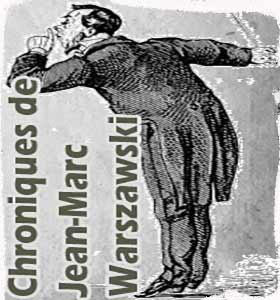
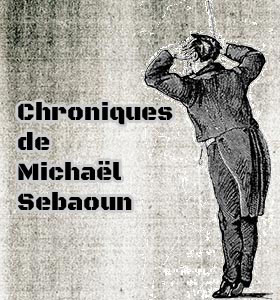
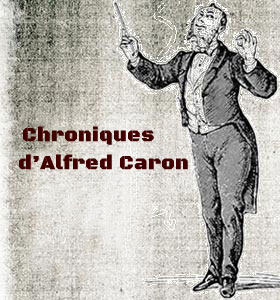
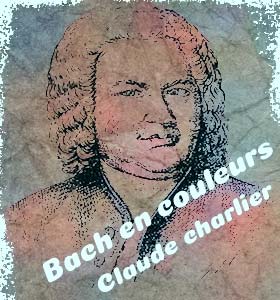
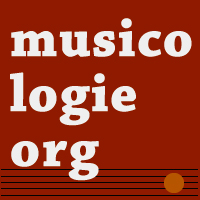 À propos - contact |
S'abonner au bulletin
| Biographies de musiciens | Encyclopédie musicale | Articles et études | La petite bibliothèque | Analyses musicales | Nouveaux livres | Nouveaux disques | Agenda | Petites annonces | Téléchargements | Presse internationale | Colloques & conférences | Collaborations éditoriales | Soutenir musicologie.org.
À propos - contact |
S'abonner au bulletin
| Biographies de musiciens | Encyclopédie musicale | Articles et études | La petite bibliothèque | Analyses musicales | Nouveaux livres | Nouveaux disques | Agenda | Petites annonces | Téléchargements | Presse internationale | Colloques & conférences | Collaborations éditoriales | Soutenir musicologie.org.
Musicologie.org, 56 rue de la Fédération, 93100 Montreuil. ☎ 06 06 61 73 41.
ISSN 2269-9910.

Mercredi 5 Mars, 2025

